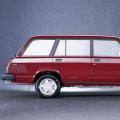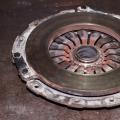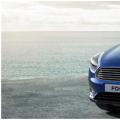It is difficult to understand all the intricacies of the composition, characteristics of engine oil and make a choice relying on them. To do this, you need to have a specialized education and clearly understand what this or that parameter carries, how this or that ingredient works and what happens in different phases of the engine or gearbox operation.
To facilitate the selection process and to protect motorists from filling the car with unsuitable compositions, manufacturers conduct research and create a set of recommendations for each motor / car brand, etc. These recommendations are called tolerances.
Each manufacturer of engine oils provides information on the tolerances that a particular product has on the packaging. The data can be trusted as companies cannot just print what they need.
To obtain the right to write a particular approval on a bottle sticker, the manufacturer of transmission or engine oil must obtain a certificate from the respective automaker. To do this, he pays for the examination of his product, waits until laboratory and bench tests are carried out. An important rule follows from this: if any tolerance is not printed on the label, it simply does not exist. The firm will not waste time and money on what it does not use.
VM oils are approved based on various international quality standards and company research. You can choose the right product just by knowing what this or that tolerance means, but it is also interesting and useful to know how the manufacturer justifies its decisions, what it relies on.
Basic tolerances for Volkswagen engine oils
The table below shows all the tolerances for VW oils that the company has created and comments on their main properties, scope.
| Tolerance | Basic properties, conditions of use |
|---|---|
| VW 500.00 | They are used for gasoline engines. Free flowing oils. Versatile in terms of seasonality of use (SAE indices: 10W-40, 20W-30, 5W-30, 5W-40). They are characterized as energy-saving - the formulations significantly reduce friction between parts, thereby achieving fuel economy. Oils with this tolerance must meet the ACEA A3-96 standard. |
| VW 501.01 | Universal oils - suitable for gasoline and diesel engines with direct fuel injection. Compliant with ACEA A2 standard. For turbodiesels, you can use products that have both this approval and VW 505.00 approval. From a seasonality point of view, this engine oil tolerance applies to seasonal and universal formulations, i.e., to the entire spectrum of the SAE classification. Check for compatibility with the elastomeric gaskets installed in the motor before use. |
| VW 502 00 | It is applicable for gasoline engines with high power and direct injection. The products meet the requirements of the A3 ACEA standard. |
| VW 503.00 | All-season formulations for direct injection gasoline powertrains. They have a reduced high-temperature viscosity, thereby creating conditions for fuel economy. They correspond to ACEA A3 and are applicable only for motors manufactured from 01.05.1999. Not suitable for earlier versions, as low viscosity at high temperatures will lead to increased wear and rapid breakdown of the units. |
| VW 503.01 | Applied to turbocharged gasoline engines. They have an extended drain interval. |
| VW 505.00 | For diesel engines of passenger cars, equipped and not equipped with a turbocharger. Meet the requirements of ACEA B3 standard. Versatile in terms of seasonality. Check compatibility with elastomeric gaskets before use. |
| VW 505.01 | Composition with SAE viscosity 5W-40. Designed for diesel engines equipped with pump injector (Pumpe-Dmse). |
| VW 506.00 | All-season products for diesel passenger cars with turbocharged engines. They have an extended drain interval, low high-temperature viscosity. ACEA standard. Applicable only to Volkswagen engines manufactured no earlier than May 1999. |
| 506.01 | For diesel engines with unit injector. Oil with a 506.01 approval has an extended drain interval and fully complies with the ACEA B4 requirements. In the R5 TDI (2.5 l) and V10 TDI (5 l) engines, VW oils are only permitted with this approval, no alternatives. |
| 507.00 | Extended drain engine oils. Suitable for gasoline and diesel engines, including those equipped with particulate filters. |
Tolerances are created based on the characteristics and needs of specific motors. Each manufacturer makes its own tolerances, since all machines are structurally different and have their own characteristics.How are tolerances implemented?
Tolerances are often based on international standards - API, ACEA, SAE. They classify oils according to various parameters - temperature viscosity, quality, applicability to machines of a particular year of manufacture. Sometimes tolerances are oil specifications for different standards, combined with each other. For example, VW 500.00 combines several SAE standards and the ACEA A3-96 standard.
API
API (American Petroleum Institute - American Petroleum Institute) studies motor oils on dozens of parameters. As a result, recommendations are made about the applicability of products to engines of a certain type and year of manufacture. The marking consists of two letters. The first is the type of engine (S - gasoline, C - diesel), the second is the year of manufacture of the car.

The API will help you more accurately determine which oil is best for the engine, if there is a choice of several options.
SAE
The SAE (Association of American Engineers) classifies an oil by its viscosity based on the ambient temperature in which the engine is operating. Therefore, the SAE classification is associated with an indication of the seasonality of the use of a particular composition.
During operation in the motor, the temperature can rise to 140-150 degrees. Naturally, under such conditions, the liquid changes its properties - it becomes more fluid. The task of researchers when assigning an oil of one class or another is to determine at what maximum and minimum temperature the composition will no longer provide normal operating conditions for the engine. This indicator depends on the ambient temperature. It is she who is encrypted in the product labeling.

SAE oil viscosity versus air temperature diagram
Explanation of designationsSAE
It is important for the manufacturer to know about the fluidity of the oil and the temperature range of its application. Therefore, the assignment of an admission is never complete without considering the SAE substance certificates.
On the forums of motorists, there are statements that any admission is an analogue of a certain SAE standard. Such opinions are wrong. Automakers make decisions not only based on the temperature range of the oil, although this is an important parameter.
ACEA
ACEA (Association of European Automotive Designers) is a European organization of which all major car manufacturers, including Volkswagen-Audi are members. ACEA oil specification is its applicability to cars with a specific engine type and a specific year of manufacture, as in the API. But this standard is more detailed. In it, engines are divided into gasoline, low-power diesel, diesel for heavy vehicles.
This classification is the basis for creating tolerances. Car manufacturers, based on the requirements of ACEA, create their own tolerances, tightening one or another standard, narrowing it with the help of SAE.
Tolerances for transmission oils
Automakers do not establish tolerances for transmission oils. In this area, everyone is guided by standards that are formulated by two concerns: General Motors and Ford. Below is a table of compliance with the specifications of these companies.
| GM | Ford | ||
|---|---|---|---|
| Year of implementation | Name | Implementation year | Name |
| 1999 | Dexron 4 | 1998 | Mercon 5 |
| 1994 | Dexron 3 | 1987 | Mercon (changed in 1993) |
| 1991 | Dexron 2 E | 1987 | EAPM - 2C166 - H |
| 1981 | Dexron 2 D | 1975 | SQM 2C9010A, M2C33 G |
| 1973 | Dexron 2 C | 1972 | SQM 2C9007A, M2C33 G |
| 1967 | Dexron B | 1967 | M2C33 F |
| 1957 | Type A Suffix A | 1961 | M2C33 D |
| 1949 | Type A | 1959 | M2C33 B |
Main characteristics of modern gear oils
To achieve one of the current specifications, the gearbox oil must meet the characteristics shown below.
| Characteristic | Dexron II | Dexron III | Allison C-4 | Mercon |
|---|---|---|---|---|
| Kinematic viscosity, mm2 / s. at + 40 ° С | not less than 37.7 | Not standardized, but must be defined and specified for a specific product | ||
| at 100 ° C | not less than 8.1 | not less than 6.8 | ||
| Brookfield viscosity, mPa / s at a temperature: -10 ° C | no more than 800 | - | The temperature at which the indicator is 3500 mPa / s is indicated. | - |
| at -40 ° C | no more than 50,000 | no more than 20,000 | no more than 20,000 | |
| at -30 ° C | no more than 6000 | no more than 5000 | - | |
| at -20 ° C | no more than 2000 | no more than 1500 | no more than 1500 | |
| Flash point, ° С | not lower than 190 | not less than 179 | not lower than 160 | not lower than 177 |
| Ignition temperature, ° С | not higher than 190 | not higher than 185 | not higher than 175 | - |
| Foaming | No foam at + 95 ° С | |||
| Copper plate corrosion no more than points | 1 | 1 | No blackening with flaking | 1 |
| Corrosion protection | No corrosion on test surfaces | |||
Recently, manufacturers of motor oils (hereinafter - MM) are increasingly receiving approvals from automotive manufacturers for the operation of consumables in their cars. This happens when the automaker is confident in the high quality of the MM. Today we will tell you what VW 502 00 oil is and what types of such consumables are.
[Hide]
Characteristics
Below we will consider the properties and characteristics of MM, which correspond to the VW 502 00 specification. Surely you are wondering what the numbers 502 00 stand for. According to official information, this is the marking of an easy-running motor fluid for gasoline and diesel engines, which are mainly used in extreme driving conditions.
Since almost the beginning of 1997, engine fluids for gasoline internal combustion engines are allowed exclusively in accordance with this classification. However, the previous approvals obtained from the car manufacturer also remain valid. This classification came to replace 500 00 and 501 01 and its requirements are based on the test for a gasoline engine T4-2.0 that was in force until that time.
In fact, classification 502 00 can be called a transitional stage in the development of lubricating fluids for motors with the possibility of extending the MM change intervals. To date, not a single motor fluid corresponding to a viscosity class of 15W-40 or 10W-40 can be approved according to the Volkswagen 502 00 standard. For consumables of this class, the VW 505 00 standard is still valid. There is the only exception, this a motor equipped with a pump-nozzle injection system.
Regarding the VW 502 00 specification, it should be noted that tolerances from automotive manufacturers must be indicated on the back of the consumable packaging.
In the same place where the characteristics of viscosity, classifications, and so on are indicated. If you see that there is no corresponding tolerance on the liquid label, then this means that the consumable simply did not receive it. According to official data, engine fluids of VW 502 00 standard meet the requirements of the international classification ACEA A3.
Views
Now we will consider the types of motor fluids that have received this approval for operation. In fact, there are a lot of such types of MM, so we will not consider all of them. Below are the characteristics and properties of the most popular consumables.
Motul Specific

Motul Specific fluid is a fully synthetic consumable material that meets specification 502 00. It was created by the engineers of the Volkswagen automobile concern specifically for use in Audi, Seat, Skoda and Volkswagen vehicles. In particular, the consumable is suitable for fixed inter-shift internal combustion engines, turbodiesel engines, and turbocharged engines. Operation of this consumable is allowed both in gasoline internal combustion engines and in diesel engines that are not equipped.
As for the characteristics of the liquid, it has a minimum amount of sulphated ash, sulfur and phosphorus in its base. According to the MM manufacturers, thanks to this:
- the consumable has excellent lubricating characteristics, as a result of which the internal combustion engine can withstand heavy loads;
- reduces the index of friction of parts;
- MM is a high temperature resistant consumable;
- allows you to increase the resource of the internal combustion engine, reducing the wear rate of the valve mechanism;
- more resistant to oxidative processes;
- prevents the occurrence of corrosion;
- helps to prevent the appearance of foam;
- complies with the international standard ACEA A3 / B4 / C3.
Mobile 1
Mobil 1 has also been approved for use in General Motors vehicles. In particular, the company produces two types of engine oils that meet the VW 502 00 standard, these are Mobil Super 3000 X1 5W-40 and Mobil 1 New Life 0W-40.

Both MM are fully synthetic consumables, which, according to the manufacturer, provide maximum protection of the internal combustion engine from wear. In particular, the manufacturer MM guarantees the consumer:
- not only protection of the internal combustion engine from wear, but also the cleanliness of the internal components of the engine;
- excellent protection at both high and low temperatures.
According to Mobil, their products provide additional protection compared to semi-synthetics and mineral water. In particular, both types of MM have been specially designed for operation under extreme loads. The fluid provides additional protection for:
- gasoline and diesel internal combustion engines;
- light vehicles, SUVs, trucks, and minibuses;
- for overloaded engines while driving on the highway or in city conditions with regular stops;
- ICE with turbocharging and direct injection;
- ICE with high performance properties.
General Motors Synthetic Longlife 5W-30 dexos 2
This consumable is the original synthetic MM developed by General Motors. Accordingly, it is intended for use in vehicles of this brand. Here we are talking about Chevrolet, Daewoo, Opel and other cars.

According to official information, MM was developed on the basis of modern synthesis technologies. According to the manufacturer, it can be replaced at extended intervals if approved by the automotive manufacturer. Since the consumable meets high quality standards, it is easily approved not only for use in Volkswagen vehicles, but can also be used in:
- Mercedes Benz;
- Ford;
- Renault;
- Fiat;
- Peugeot.
Since the development was carried out directly with the engine builders of General Motors, the original MM offers the best protection against wear. In addition, it can provide maximum performance when operating in an internal combustion engine from this company. Therefore, owners of cars from General Motors should think about it.
Liquid Moli Top Tech 5W-40

This consumable material is an all-season MM with high flow properties. The developers used a combination of unconventional base MMs and mixed them with various additive packages. As a result, a fluid was created to protect the combustion engine from increased wear. In addition, according to the manufacturer, MM allows not only to avoid increased consumption of the oil itself, but also the fuel on which the car drives. In addition, the excellent lubricating characteristics of the internal combustion engine stand out.
This MM meets the latest Euro 4 requirements and has recently been increasingly recommended for Mercedes Benz vehicles equipped with diesel engines and particulate filters.
As for the approvals, in addition to VW 502 00, Liquid Moli also received a permit for use in vehicles:
- Ford;
- Mercedes Benz;
- Volkswagen;
- Fiat;
- Renault.
Castrol Magnatek
 Consumable Castrol Magnatek conforming to VW 502 00 specification
Consumable Castrol Magnatek conforming to VW 502 00 specification 5W-40 fluid was developed specifically for use in modern gasoline engines, both turbocharged and non-turbocharged. With regard to the benefits guaranteed by the manufacturer:
- consumable material for a long time and reliably allows you to protect the internal combustion engine from increased wear;
- creates a protective layer on the internal combustion engine components, which remains from the start of the engine until the next start;
- during the operation of the internal combustion engine, the substance is directed to the engine units that are subject to the most increased loads, thereby additionally protecting it;
- does not negatively affect the functioning of the exhaust gas cleaning system;
- allows you to easily start the internal combustion engine even at the lowest temperatures.
Video « Liqui Moly Special Tec LL 5W-30»
The selection of engine oil is based on the VAG approval. For gasoline engines it is 502.00 503.00 504.00, for diesel engines - 505.00 505.01 506.00 507.00
Which oil to choose?
Selection of engine oil for Volkswagen
The most common Volkswagen petrol tolerance is 502.00 (petrol) 505.00 (diesel). Almost every synthetic and semi-synthetic imported and domestic motor oil of various viscosities has it.
Worn out and not the most modern engines can be cast 5W-40, including semi-synthetics. Recommended, for example, for: VW Polo sedan 612 1.6i CFNA, CFNB.
For extended drain intervals and for modern TSi, FSi, TFSi engines, the most modern oil with Long Life tolerances 504.00 (petrol) 507.00 (diesel) is required.
Application example: Tiguan 5N2 1.4TSi CAXA.
The exact applicability is in the original ETKA spare parts catalog. In it, you can select the oil by VIN.
Original Volkswagen oil
In online stores, you can see the same article of the original with an almost two-fold difference in price. What does this mean? Make a fool of our brother. Or someone makes a big markup. or what is sold at a low price is counterfeit and it is dangerous to buy it.
Original Volkswagen oil makes Castrol... The canister contains the manufacturer's details - Setra Lubricants. This means that when buying Castrol, we are purchasing the same original or a product very close to it. The Castrol canister has a range of anti-counterfeiting features: an inscription on the lid, a foil lock-shaped badge on the label, a laser-engraved code on the bottom of the canister. The paint code on the original oil can is the first sign of a fake.
Review of imported and domestic engine oil with VW tolerances and approvals
By links - description, classifications, order codes, physical and chemical properties and characteristics, prices of various manufacturers. The cost may fluctuate both in time and in the location of the auto parts market, but it allows a comparative analysis of the cost from different manufacturers.
Order codes are subject to change, too. Some brands have no uniform article numbers at all.
Volkswagen oil with a tolerance of 502.00 505.00
The most common synthetic, ACEA A3 / B4, is suitable for most engines and normal drain intervals. Sometimes, some manufacturers, together with 505 00, slip the 505 01 tolerance for turbodiesels with Common Rail pump injectors.
For a list of suitable oils in different viscosities, follow the links.
SAE 0W-30 502.00 505.00
Original Special C. Catalog numbers G 055 167 M2, G 055 167 M4, G 055 167 M6.
Castrol, Addinol, Champion, Elf, Fuchs, Total, Liqui Moly, Wolf, Ravenol.
SAE 5W-30 502.00 505.00
Shell Helix HX8, ZIC X7 and X7 LS
SAE 5W-40 502.00 505.00
The most common viscosity for tolerances is 502 00 and 505 00. Large selection of both imported and domestic oils at the best price. Russian, such as Sintec, can cost less than 200 rubles per liter.
BP, Castrol, Champion, Comma, Elf, Shell, Total, Wolf, Gazpromneft, Rosneft, Sintek.
VW TDI oil with a tolerance of 505.01
Fully synthetic, medium ash, with sulphated ash content up to 0.8%. Complies with ACEA C3 specification.
Recommended for diesel engines with pump injectors and turbocharged engines with common rail system. Suitable for vehicles with Euro 4 and Euro 4 exhaust systems. Below is a description and a list of recommendations for different viscosities.
SAE 5W-30 505.01
SAE 5W-40 505.01
Volkswagen LongLife II oil with a tolerance of 503.00 506.01
Original part numbers G052183M2 G052183M4 G052183M6
For extended intervals, svamens. When operating the car in gentle European conditions, it is recommended to change it every 30,000 km.
For R5 and V10 turbodiesel engines without particulate filter of vehicles manufactured before 2006.
Volkswagen LongLife III oil with a tolerance of 504.00 507.00
For extended drain intervals (Long Life). When operating a car in sparing European conditions, it is permissible to change it every 30,000 km. In reality, it is impossible to change so rarely. When operating in the city, when the engine hours are large and the mileage is small, aging occurs earlier. It seems that 15 thousand kilometers is the real term for replacing the third Longlife.
Synthetics List SAE 5W-30 504.00 507.00
G 052 195 M2, G 052 195 M4, G 052 195 M9. Manufactured at BP Castrol factories.
Original - a lot of counterfeit, it's dangerous to buy. And it's expensive. Better to use the same Castrol or BP.
Original, Castrol, BP, Champion, Mobil, Wolf, Comma.
VW oil with a tolerance of 508.00 509.00
Fully synthetic for the newest VAG engines. Mandatory for 2.0 TFSI 140 kW and 3.0 TDI CR 160 kW engines.
Synthetics SAE 0W-30 508.00 509.00
There is no original VAG oil in the price list. The Russian market is littered with fakes and it is difficult to determine the correct price for it. Perhaps the correct five-liter canister G 052 195 M4 cannot cost less than 60 Euro.
Motul SPECIFIC 502 00/505 00/505 01 engine oil was developed taking into account the design features and operating conditions of gasoline and diesel engines of the VAG concern. Nevertheless, the high technical characteristics of this lubricant with a margin meet the requirements of the German manufacturer, which allows it to be used in power units of most other brands.
The composition of this process fluid, although it has an exclusively synthetic base, has a number of distinctive features. First of all, this is compliance with the requirements of the Mid SAPS category, which implies the presence of a certain amount of sulphated ash, sulfur and phosphorus in the composition. Because of this feature, this oil is suitable for engines without a particulate filter. Another advantage of the "base" used in it is a very low pour point. This product retains its lubricity down to minus 36 degrees Celsius.
Main features of Motul SPECIFIC 502.00 / 505.00 / 505.01:
- designed for VAG engines;- effectively combats wear;
- improves power properties and fuel efficiency;
- stable characteristics at high temperature exposure;
- lightweight cold start.




